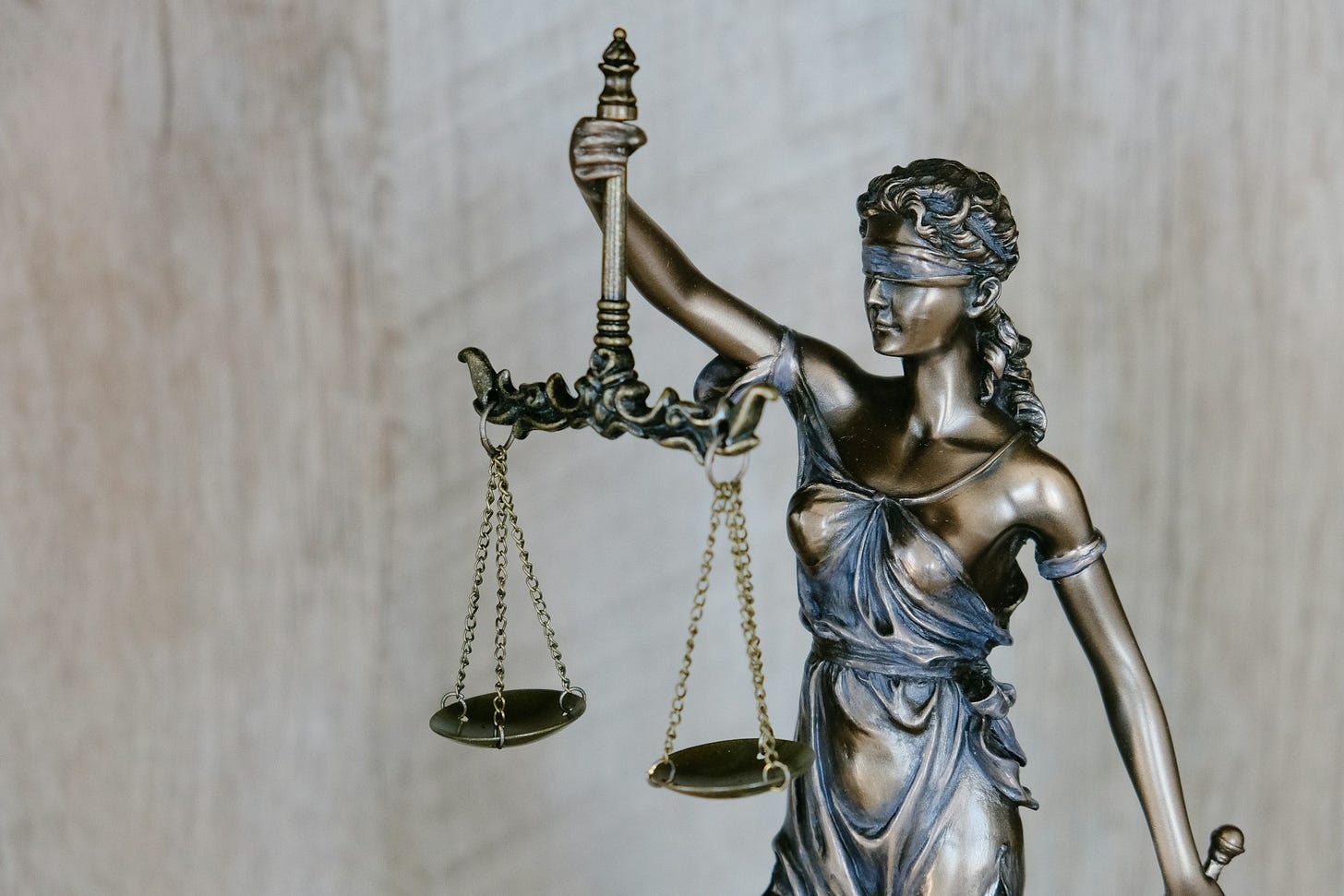Polluters evade citizen’s arrest raising question of who delivers justice
Two campaigners have attempted to make a citizen’s arrest on Thames Water executives. According to reports:
Environmental campaigners have attempted citizen’s arrests of the chief executive and chief financial officer of Thames Water on suspicion of causing a causing a public nuisance.
The campaigners accuse Chris Weston and Alastair Cochran of five to seven counts of the offence, which is regularly used against protesters, including illegal discharge of sewage, mismanagement of customer funds and operating unsafe infrastructure.
They say they have worked with lawyers to draw up a draft indictment supporting their allegations, which they intend to submit to prosecutors.
Their action came as the Guardian revealed Thames Water increased the amount of raw sewage it was discharging from its system into England’s rivers by a record 50%, and in the week the company won approval from the court of appeal for a £3bn emergency debt bailout to avoid financial collapse.
No doubt the action was merely a stunt looking for the headline, but it nevertheless points to an interesting question when we look—in creative speculation and certainly not as legal advice—at section 24A “Arrest without warrant: other persons” of the Police and Criminal Evidence Act 1984 and how it could be interpreted in light of polluting crimes:
(1) A person other than a constable may arrest without a warrant— (a) anyone who is in the act of committing an indictable offence; (b) anyone whom he has reasonable grounds for suspecting to be committing an indictable offence.
(2) Where an indictable offence has been committed, a person other than a constable may arrest without a warrant— (a) anyone who is guilty of the offence; (b) anyone whom he has reasonable grounds for suspecting to be guilty of it.
(3) But the power of summary arrest conferred by subsection (1) or (2) is exercisable only if— (a) the person making the arrest has reasonable grounds for believing that for any of the reasons mentioned in subsection (4) it is necessary to arrest the person in question; and; (b) it appears to the person making the arrest that it is not reasonably practicable for a constable to make it instead.
(4) The reasons are to prevent the person in question— (a) causing physical injury to himself or any other person; (b) suffering physical injury; (c)causing loss of or damage to property; or (d) making off before a constable can assume responsibility for him.
Given the polluters are arguably committing indictable offences every day, are causing injury to others and it does not appear reasonably practicable for a constable to make an arrest, it kind of makes sense.
This is obviously just the mild end of a spectrum that goes all the way through to the UnitedHealthcare CEO shooting (despite dropping out of the headlines, the sympathy for the alleged shooter has not gone away: last month, Mangione released a statement asking fans not to send so many photos which are clogging up his privileges).
The point being, the longer the political, economic and legal system refuses to give people justice, the more likely it is they will deliver it themselves. Typically, when people deliver their own justice, it is chaotic and messy: Our Fair Future offers the best chance of doing so in a reasonable manner.



